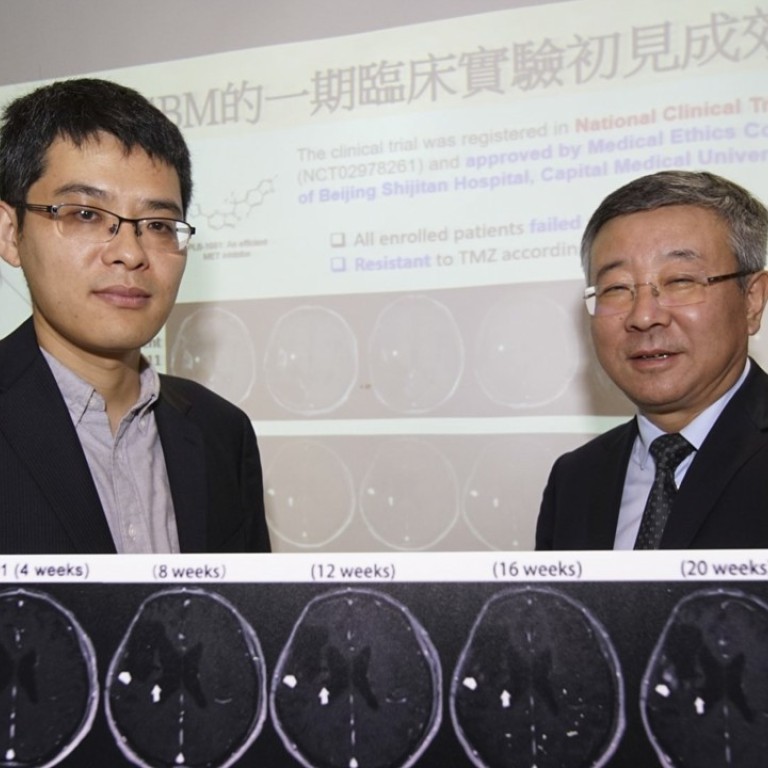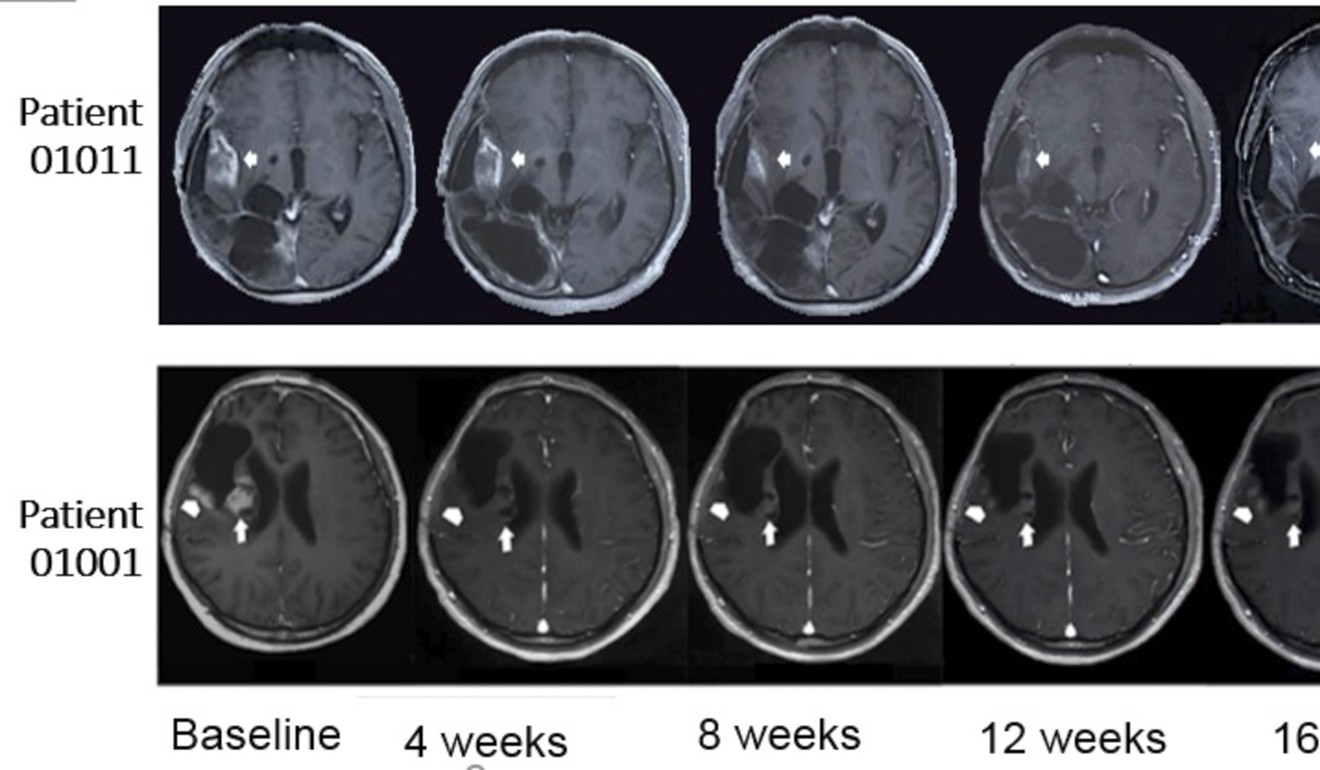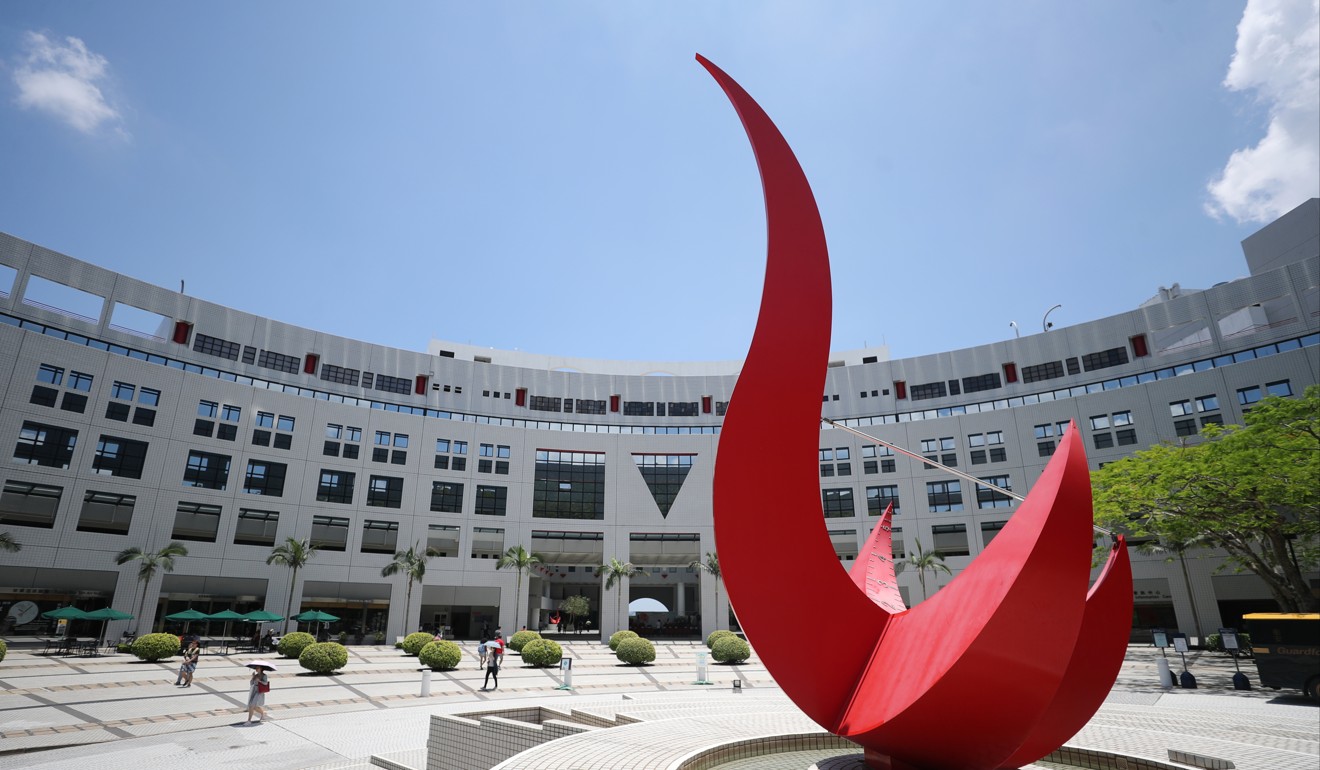
Breakthrough drug co-developed by Hong Kong research team offers hope of longer life to brain cancer sufferers
- Researchers at Hong Kong University of Science and Technology say the drug, PLB-1001, can stall the effects of rare disease Secondary Glioblastoma
- The drug showed signs of success in a three-month trial on patients whose cancer was resistant to chemotherapy
Patients diagnosed with a deadly brain cancer may soon see new hope of living longer following a breakthrough by researchers from a university in Hong Kong, the school announced on Monday.
Around 200 Hongkongers are afflicted by brain cancers every year; among them, about 20 are diagnosed with a rare but aggressive type called Secondary Glioblastoma, known as sGMB.
Current treatments for sGMB, including chemotherapy and orally administered drugs, have proven to be ineffective, with a mortality rate of almost 100 per cent.
Now, in a world first, scientists from the Hong Kong University of Science and Technology (HKUST) have announced a discovery that a type of gene mutation is the major culprit behind the cancer’s aggressive progression.
“Previously, anyone who had the cancer would die,” said researcher and assistant professor, Wang Jiguang. “But this gives us a ray of hope that the tumour cells can be tamed.”
Since 2016, the team has been working together with Beijing Tiantan Hospital on sGBM patients.
They identified a gene alteration, known as the METex14 mutations, among 14 per cent of about 80 patients. Due to the mutation, a protein gene in the brain experiences an increase in activity, which activates the sGBM cells, leading to the brain tumour’s growth.
‘The most powerful sound you will never hear’: could this treatment lead cancer fight?

With the discovery, the team at the university’s campus in Clear Water Bay then arranged for the patients to undergo a new kind of treatment called the PLB-1001.
Patients were prescribed a daily dosage ranging from 50 to 300 milligrams of the oral drug over the course of three months.
Of the 18 patients studied, two experienced a reduction in their tumours and showed no signs of recurrent symptoms for as long as three months. Another seven sGBM patients’ illnesses remained stable for the 12 weeks.

Without the drug, the scientists said the patients would surely die from the disease within 10 years.
“We saw a connection between those who experienced the METex14 mutation and the drug. We used PLB-1001 as a stand-alone drug and we saw shrinkage of the tumours over a three-month period in selected patients,” HKUST’s researcher and assistant professor, Wang Jiguang said.
Call for universal breast cancer screening in Hong Kong
The study revealed that the drug molecule was able to penetrate the blood barrier and reached the tumours in the brain. The researchers called the results a breakthrough.
“Those who took part in the research are chemo-resistant patients and have not responded to any form of medication, so to see such a positive response from them is quite a success,” Wong added.
While FDA approval of PLB-1001 is still pending, Wong said more studies are needed to see if the drug can be used in conjunction with other drugs to have longer lasting results.

